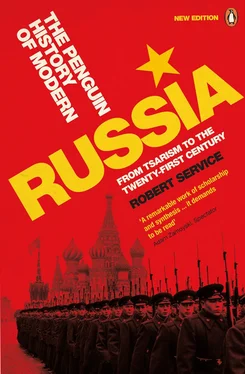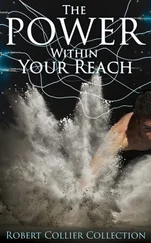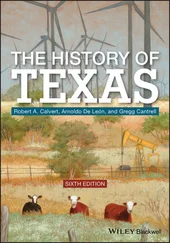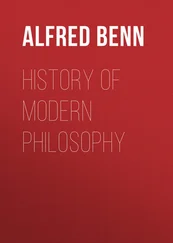Ukrainian Autocephalous Church, 203, 369
Ukrainian language, 316
Ulyanov family, 71
Ulyanov, Alexander (Lenin’s brother), 71
Ulyanov, Vladimir see Lenin, Vladimir I.
Ulyanova, Maria (Lenin’s sister), 153
unemployment, 55, 170, 356
‘Union Bureau’, 185
Union of Landowners, 39
Union for the Liberation of Ukraine, 200
Union of Right Forces (party), 561
Union of the Russian People, 11, 53
Union of Sovereign States: proposed, 505–7
Union of Soviet Socialist Republics (USSR): formed, 132–3; Constitution, 133 , 152; Western dislike of, 170, 398; post-World War II status, 294–5; rivalry with USA, 294, 301–2, 310, 312–13, 330, 336, 400; World War II damage and casualties, 295; in Cold War with USA, 312–13; at Stalin’s death, 328; as super-power, 397, 551; and détente with West, 399; Yeltsin’s proposals for, 505–6; ends, 507, 509–10; achievements, 550–51; passing regretted, 529; see also Commonwealth of Independent States
Union Treaty (Novo-Ogarëvo agreement, 1991), 494–9, 506
Union of Writers: Congresses, (1934), 248; (1986), 448
Union of Writers of the RSFSR, 480
united front: Comintern disavows, 178
United Nations: formed, 294; and Korean war, 312; Gorbachëv addresses Assembly (1988), 465, 468
United Opposition, 160–62, 164
United Russia (party), 552–3, 559
United States of America: and World War I, 78; and Russian civil war, 102; diplomatic relations with USSR, 229; in World War II, 268, 277; sends wartime supplies to USSR, 269; and post-World War II European settlement, 271; in war against Japan, 272; Soviet wartime suspicion of, 280; post-war rivalry with USSR (‘Cold War’), 294, 301, 302, 310, 312–13, 330, 336, 400; foreign policy hardens, 308; and Korean war, 312, 330; Eastern Europe an policy, 330; Khrushchëv’s policy on, 352–4; Khrushchëv visits, 353; threatens nuclear retaliation, 353; Khrushchëv attacks, 362; and Cuba missile crisis, 374; and nuclear control, 388; and détente with USSR, 399; relations with China, 399–400; and Vietnam War, 399; and Soviet invasion of Afghanistan, 411; Andropov suggests mutual accords with, 432; and Gorbachëv, 444, 464–5, 496; Clinton–Yeltsin ‘partnership’, 536
Unity (party), 552
universities, 141, 321
Urals Republic, 521
Urals-Siberian method, 174
urbanization, 245–6, 328, 421
Usov, Vladimir, 501
Ustinov, Dmitri, 236, 404, 426, 428, 431, 434
Uzbekistan: nationalism, 131, 391, 474; education in, 190; scandals in, 456; ethnic violence, 481–2; declares sovereignty (1990), 489–90; joins Commonwealth of Independent States, 507; resistance to reform, 553
Uzbeks: birth rate, 422; riots with Meshketian Turks, 481
Valentinov, Nikolai, 71
Vareikis, I.M., 213
Varennikov, General Valentin, 497–8
Varga, Jenö, 301
Vasilevski, Alexander, 265
Venezuela, 562
Venzher, V.G., 322
Vienna summit (1961), 354
Vietnam, 389, 399
villages see communes; peasants
Vilnius, 296, 457, 494
Vinogradov, V.N., 324
Vistula, river, 121
Vladivostok, 4, 399, 460, 465
Vlasik, N.S., 324
Vlasov, Aleksei, 421
Vlasov, Lieut.-General A.N., 264, 277, 300
Voice of America (radio), 415
Volga Germans, 276–7, 367
Volga region, 79, 102, 104, 106
Volga, river: pollution, 468
Volsky, Arkadi, 515
Volunteer Army, 113
Vorkuta, 335
Voronov, G.I., 401–3
Voroshilov, Kliment E., 155, 219–20, 241, 262, 265, 316, 333
Voznesenski, Andrei, 365
Voznesenski, Nikolai A., 302, 303
Vrangel, General Pëtr N., 116, 136
Vyazma, 264
Vyborg (Finland), 15
Vysotski, Vladimir, 415
wages: level of, 143, 146, 178, 250, 304–5, 356–7, 416; differential, 192; increase under Gorbachëv, 468; arrears under Yeltsin, 516, 519, 541
Wałesa, Lech, 409
War Communism, 127, 170
War-Industry Committees (World War I), 29–30
Warsaw: and Russian advance in World War II, 267; Soviet building in, 323; 1956 strikes, 342
Warsaw Pact: formed,
337; and Polish unrest, 411; and Gorbachëv’s foreign policy, 442–3, 463–4, 484;
see also Eastern Europe
Webb, Sidney and Beatrice: Soviet Communism: A New Civilization? , 240
Weinberger, Caspar, 444
welfare see social welfare
West Germany see German Federal Republic
wheat see grain
White armies, 102, 113, 116–17
White House see Moscow
Wilhelm II, Kaiser, 1, 102, 107
Winter Palace (St Petersburg), 65, 89
Witte, Sergei, 4, 14
women: exercise power, 86; position of, 143, 417; and abortion, 422; and Andropov’s regime, 429–30
Women of Russia (party), 527, 530
workers: pre-World War I expansion, 8; aspire to control,
56; win control, 68, 88; direct action by, 69; apathy about soviets, 83; post-revolutionary status, 87–8; behaviour, 89–90; education of, 96, 142; in state administration, 96; unrest, 122; Bolshevik advancement of, 142–4; acquiescence, 146; and conditions of employment, 146; conditions, 184; under First Five-Year Plan, 184; and Stakhanovism, 217, 244; wartime diet, 276; turnover, 359–60; conditions under Brezhnev, 409–10; promotion reduced, 422; after communism, 541; poverty level, 539; see also labour
Workers’ Opposition, 117–18, 121, 125–6, 161
Workers’ and Peasants’ Inspectorate, 118–19, 148, 171
World Trade Centre (New York), 554–5
World War I: outbreak, 25–6; conduct of, 26–7, 30, 49, 52–3; 1917/18 peace agreement, 62, 68,
75–8; unrest against, 81; and change in social behaviour, 143
World War II: conduct and campaigns, 254–73; outbreak (1939), 256; early Soviet setbacks, 260–62; ends, 272; administration and organization in, 276–9; casualties and damage, 279, 286, 295–6; repression in, 280; living conditions, 285; German occupation regime and behaviour, 286–90; patriotism in, 288–90writers and artists
see intelligentsia; literature
Yabloko (‘Apple’; political grouping), 526, 557, 561
Yagoda, G., 185, 218, 221
Yakovlev, Alexander: opposes Russian nationalism, 423; radicalism, 449, 459; Gorbachëv promotes, 459, 462, 486; and Eastern Europe, 463; Gorbachëv’s view of, 487; voted off Central Committee, 490–91, 493; rift with Gorbachëv, 493; warns Gorbachëv of coup, 496; at siege of Moscow White House, 501
Yakovlev, Yegor, 449
Yakunin, Gleb, 382, 476
Yalta conference (1945), 263, 269, 271–2, 305
Yanaev, Gennadi, 494, 496, 498–501
Yanson, N., 178–9
Yaroshenko, L.D., 322
Yaroslavski, Emelyan M., 198, 237
Yashin, Lev, 357, 421
Yavlinski, Grigori, 534, 557, 561
Yazov, Marshal Dmitri T., 496, 499, 501–2
Yefimov, Boris, 168
Yegorychev, N.G., 384
Yekaterinburg see Sverdlovsk
Yeltsin, Boris: and Russian identity, 132; appointed to Central Committee Secretariat, 438; background and character, 439, 453, 503–5, 510, 532; Gorbachëv promotes, 442; and public opinion, 449; urges faster reforms, 452–3, 488; relations with Gorbachëv, 453, 503; resigns from Politburo, 453; endorses Gorbachëv at 19th Party Conference, 461–2; elected to Congress of People’s Deputies, 475; sets up formal opposition, 475; wins seat on Supreme Soviet, 475; popularity, 477, 496, 504, 513; and Gorbachëv’s remaining in party, 487, 491; elected Chairman of RSFSR Supreme Soviet, 488; dispute with Polozkov, 489, 494; drinking, 489, 513, 530; at 28th Party Congress, 491; supports commission on economic recovery, 492; works with Gorbachëv, 494; political reforms in RSFSR (‘de-partization’), 495; and attempted coup against Gorbachëv, 498, 500; and storming of Moscow White House (1991), 500–502; supports independence for Baltic states, 503; policies and political administration, 505–6, 513; and break-up of USSR, 507; economic reforms, 509–10, 512–17, 525–6, 532; leadership, 509–11, 513, 522–3, 529; opposition to, 512, 520–24, 531, 532, 538; political appointees, 512–13, 515–16, 522, 529–31; attitude to internal republics, 520–21; resists Russian Supreme Soviet impeachment call, 522–3; constitutional reforms, 523, 527; attacks White House (October 1993), 524–5; and 1993 election results, 528; and ‘the oligarchs’ 532, 538; constitutional powers, 528–9, 531; and international affairs, 535, 536–8; and Chechnya, 533–4, 545–6; health decline, 530, 532; stands and wins in 1996 Presidential election, 530; and the Army, 538; and the media, 538; fundamental reform, attitude to, 529; retires, 546
Читать дальше












